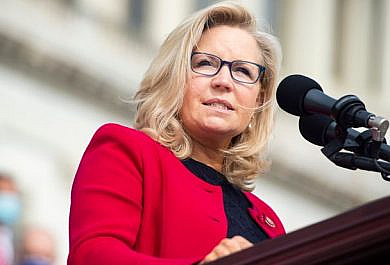Republicans appear poised for a strong showing in House and governors’ races. However, one week from Election Day, the battle for the Senate is a tossup.
Summary
Republicans appear poised for a strong showing in House and governors’ races. However, one week from Election Day, the battle for the Senate is a tossup.
- Rising crime, inflation, and President Joe Biden’s poor job approval numbers should give Republicans momentum in the Senate’s top battlegrounds, but polls indicate Republicans have yet to seal the deal with voters.
- In all likelihood, the Senate majority will likely be determined by just five swing states: the three Democratic-held seats in Arizona, Nevada, and Georgia and Republican-controlled Pennsylvania and Wisconsin.
- Aside from those five races, Republican-held Ohio and North Carolina remain close in polling averages, although the Republican nominees in both states are likely to prevail. Both parties are spending in Democrat-leaning Colorado and Washington, a sign Democrats aren’t taking any chances this year.
- After a bruising primary season, mainstream Republicans have prioritized victory over factional disputes and consolidated support behind even their more controversial nominees like Gen. Don Bolduc in New Hampshire, Blake Masters in Arizona, and Herschel Walker in Georgia.
- On the Democratic side, John Fetterman’s disastrous Pennsylvania Senate debate sent Democrats into a panic, although Democratic groups have worked to go on the offensive against Republican nominee Mehmet Oz to make up for Fetterman’s terrible performance.
- Former President Barack Obama is back on the campaign trail, crisscrossing the country to help Democratic candidates up and down the ballot. Obama is campaigning in the swing states Biden has avoided to try and stave off a midterm shellacking for Biden like the ones inflicted on Obama in 2010 and 2014.
- The issue environment should be favorable to Republicans. Gallup’s latest survey found Americans are most concerned about the economy, abortion, and crime heading into the midterm elections.
- Sen. Rick Scott, the Senate Republican campaign chief, predicted Republicans would win at least 52 seats on Election Day, a net gain of two seats. Scott told CNN’s Dana Bash he expects Republicans to win Georgia, Pennsylvania, Arizona, Wisconsin, and Nevada.
![]()
- The New York Times writeup of their last round of Senate polls described Senate control as resting “on a knife’s edge” with the races Nevada, Georgia, and Pennsylvania neck-and-neck in the home stretch of this “deeply volatile and unpredictable” midterm election
- CNN argued Republicans’ bet that crime would be a top issue for voters is paying off and is part of why “momentum is clearly with Republicans.” Republicans spent $64.5 million on crime-focused ads in the first three weeks of October alone.
- The Washington Post outlined five scenarios for Senate control, including: GOP Senate control; Trump-endorsed candidates underperform and cost the GOP the Senate; results varied by states due to the regional differential in gas prices; and strong governor candidates pull weaker Senate candidates over the finish line.
![]()
- The Wall Street Journal wrote that although Republicans are favored in the House, “strong Democratic incumbents and stumbles by some untested Republican candidates endorsed by Mr. Trump have kept the fight for the Senate closer than expected.”
- The Washington Examiner used internet search trends to illustrate how Georgia has moved away from Democrats in 2022. Education, taxes, and inflation were top of mind for Peach State voters while abortion concerns surged over the summer before dropping off in the fall.
- National Review examined the evidence behind the theory that Stacey Abrams’ gubernatorial campaign is failing to the point that it’s dragging down the reelection bid of Sen. Raphael Warnock, her fellow Democrat. If Walker prevails on Tuesday, Abrams may deserve the lion’s share of the blame.
© Dominic Moore, 2022






